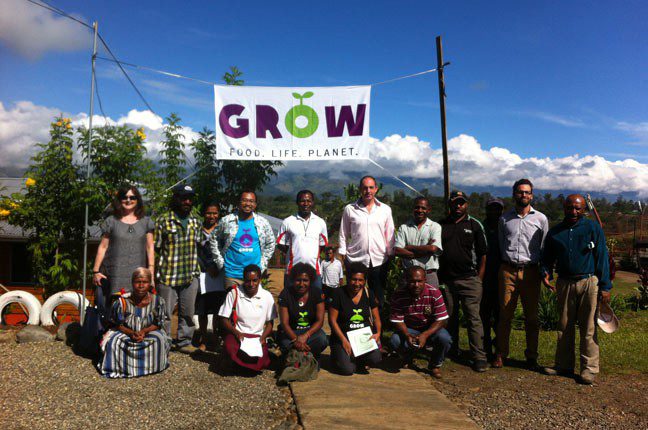Last month, Oxfam launched its GROW campaign in Papua New Guinea and released two new short films that show how local activities in the Highlands are changing lives for the better.
GROW is Oxfam’s global campaign to fix the broken food system. Around the world today, one in eight people go to bed hungry. By 2050, the world’s population is predicted to rise to nine billion, while at the same time the very building blocks of the global food system – crop yields, land, water, fuels and fertilisers – are close to reaching their limits. The fundamental challenge of the 21st century will be feeding the world’s hungry people within the essential ecological boundaries of our planet.
These problems are evident in PNG.
“Nearly one quarter of children under five in PNG are underweight,” said Dennis Uba, Oxfam Country Director. “We welcome the Government’s commitment in its Medium Term Development Strategy to lift subsistence agricultural production by 34 per cent. But the Government is not supporting small-scale producers by nearly enough to reach this goal,” he said.
The people of PNG face significant food insecurity, particularly in urban areas. The country is highly vulnerable to climate change and disasters, all of which threaten the country’s ability to maintain a reliable supply of food. The resources boom has fuelled inflation and higher prices for basic commodities.
An additional challenge in ensuring that everyone has enough to eat is that a huge land grab across the last decade has reduced the amount of viable agricultural land available for local food production. Oxfam has called on the Government to make public the Commission of Inquiry Report into Special Agricultural Business Leases.
“We have just witnessed the biggest land grab in PNG history and people have a right to know the full extent of what has happened. Land grabs mean less food for local people. The Government should release the Report and make permanent the moratorium on issuing new leases,” said Mr Uba.
Oxfam is supporting a number of activities in the Highlands, NCD, and in East Sepik designed to improve agricultural production and strengthen the self-reliance of women in food production. You can read more about our work in PNG here

